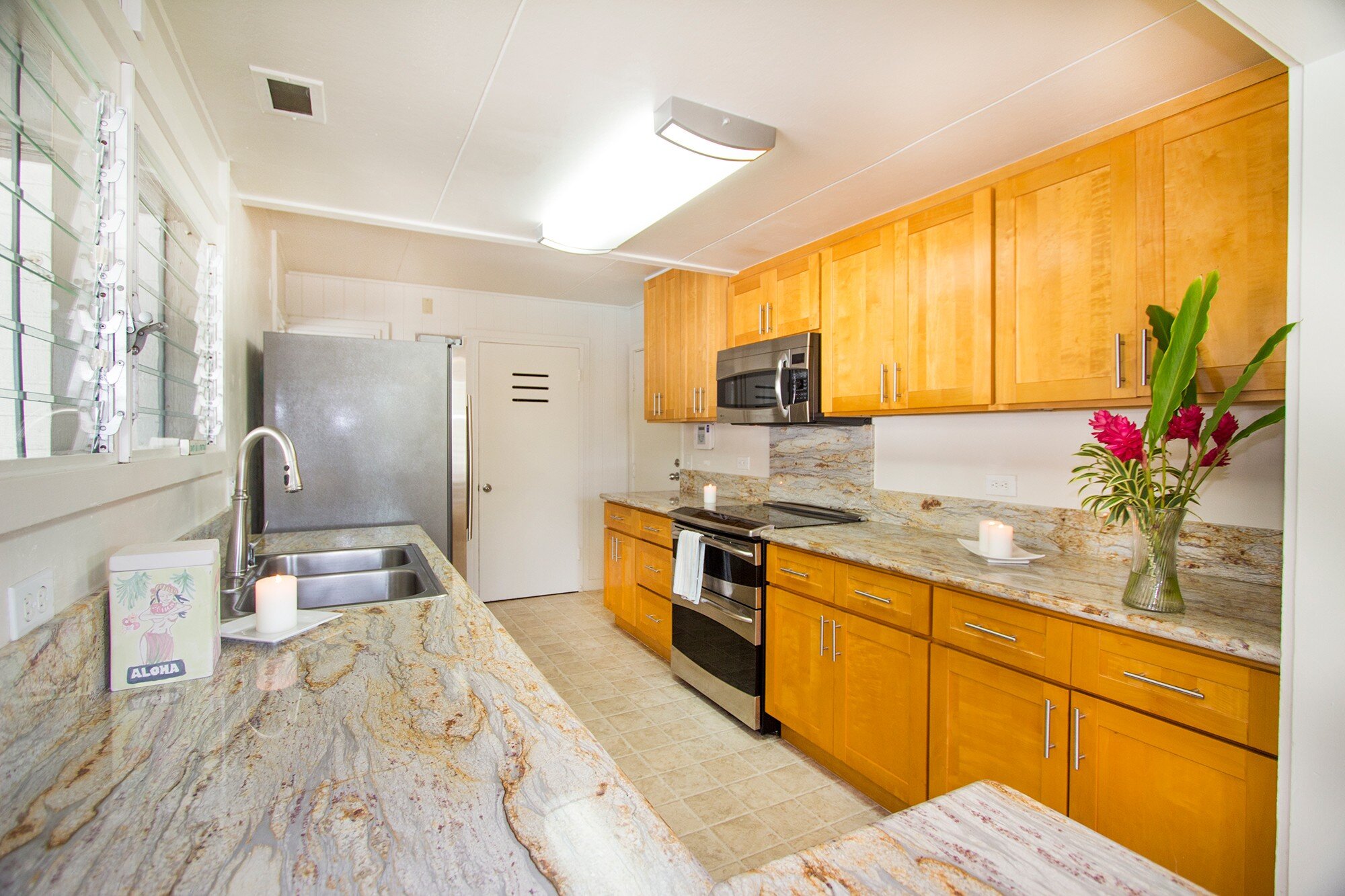
Tips for Home Buyers
Oahu’s current real estate market along with Hawaii’s unique characteristics make it a great time to Buy & Sell property. Find out why.
Fee Simple vs Lease Hold
The most common question I receive is “What is the difference between Fee Simple and Lease Hold?” Learn why some people prefer one over the other and which I recommend to my clients.
Purchase Contract Tips
The Purchase Contract is an essential part of buying and selling real estate. Learn about 2 key sections and why they are so important.
Additional Buying Tips
Location, Location, Location
You can change many things about the inside of your home, but you can’t change location. Consider the neighborhood and the schools in the area when you buy your home and when you sell it. My experience has taught me that people will buy into a neighborhood with a better public school than otherwise.
Your first home won’t be your last home. When buying a home consider how easy it will be to sell it in 5 to 7 years and what upgrades or renovations will cause the home to appreciate at a higher rate. Will adding a new kitchen help with the future sale?
Look for properties that are comfortable but also a slight stretch. As your income grows and your career progresses, you will be able to live in a home that can potentially sell at a higher rate and is located in a neighborhood with better schools.
Be patient. If you have specific criteria on location, space, or other features you will have to be diligent to look at all properties and wait for the right property to show up.
Appraisal & Home Inspections
Always exercise your right to a home inspection. Home inspections will cost between $300-$1000, depending on the size and age of the home, and should be performed by a licensed home inspector who will be impartial to the inspection’s outcome. The licensed inspector will provide a report which details the home’s system, structure and will note any deficiencies. You can then decide if the seller should be asked to remedy the deficiencies or if you will ask for credits that will help cover closing costs. Work with a licensed broker to navigate through these negotiations.
An appraisal is an opinion of value from a licensed real estate appraiser who visits the home and inspects its size, condition, function, and quality. An appraiser comes out to the property and inspects the home. Next, the appraiser researches similar homes in the area and compares recent sales to determine a fair market value. This helps the bank ensure that the subject property fits their criteria so they can determine if they can lend you the money.
Financing
It is recommended that homebuyers look for homes that cost no more than three to five times their annual household income, assuming a 20% down payment and only moderate debt in addition to new housing payment.
Lenders use this guideline because it has been shown to be a level at which most borrowers can comfortably repay their mortgage, while still having money left over for “life.”
When setting yourself up to buy your first home Financing is a big piece of the picture. Make sure you have two years’ worth of tax returns and a solid work history. Bring at least two pay stubs to your meeting with the lender. If you are self-employed, consider bringing even more evidence of your financial stability.
Check your Credit: Mortgage lenders will evaluate your credit using the FICO scoring model. The FICO model scoring ranges from 300-850. Generally, the higher your credit score, the better loan for which you’ll qualify.
Get Pre-approved. It also allows you to move much faster when you find that perfect home. In today’s competitive market, a pre-approval lets the seller know your offer is serious. Not having one can weaken your bid and cause you to lose out to another buyer whose financing is already in order.
A pre-approval letter shows sellers and real estate agents you’re a serious homebuying candidate. In fact, some agents won’t accept purchase offers without one. Pre-approval also gives you a clear sense of how much home you can buy.
Change isn’t your friend during the home buying journey. It’s not enough to get your credit and finances in order before starting the process – work hard to keep them that way as you move toward closing day. Avoid big purchases, changing jobs, etc. during the transaction.
Signing & Closing
Signing and Closing often get confused by new Homebuyers. A property in the State of Hawaii does not transfer title until after the signing. The Deed transfers between the seller and buyer and that takes place two days after signing. After recordation, the buyer becomes a new homeowner and you get the keys.
In competitive markets and depending on your price range, properties in Hawaii can be competitive. Sweeten the Deal: Cash offers or large down payments get attention in a competitive bidding situation when you’re buying a home. However, other considerations such as flexibility with the closing date and shorter inspection periods can sway sellers.
Transactions are taking longer to close. In prior years, a transaction would take 45 days but now with new lending standards banks are taking longer for underwriting. Now transactions take 50 to 55 days on average.
Work with a Licensed Realtor who Advocates for You
Hawaii is a small island and while buying or selling a home is a business transaction, I believe caring for my clients and advocating for their needs is first. Work with a Realtor that understands and takes the time to know what is important for you now and in the future. Contact me to discuss your next chapter.




